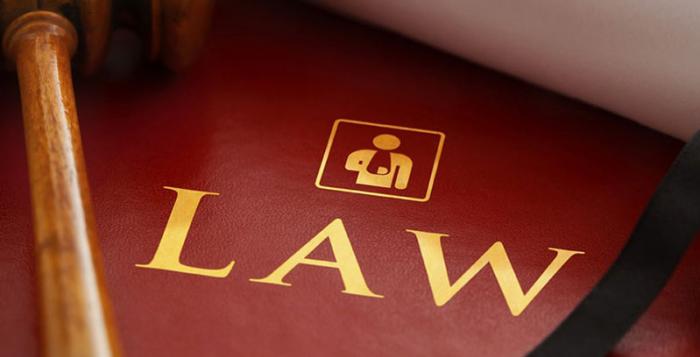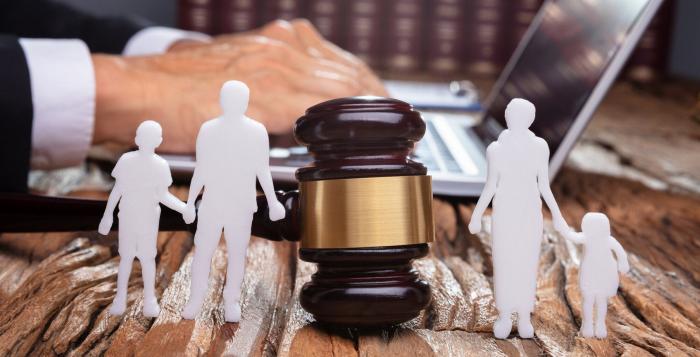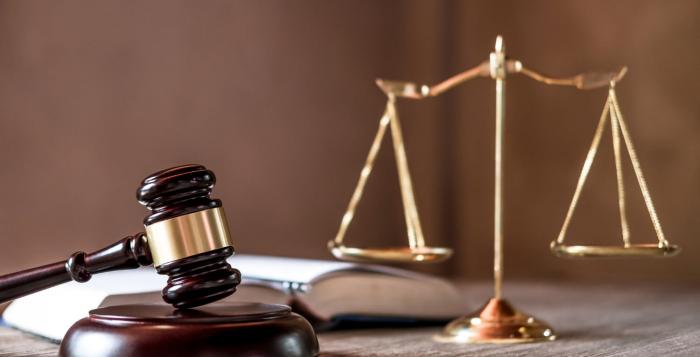The law encompasses many different careers and when choosing what type of law to practice, there are a variety of choices. Not only do lawyers choose between civil and criminal law but many specialize in a specific type of civil or criminal law. Learning about the difference between these two disciplines can help you choose a career path that's right for your legal career.
In this article, we explain civil vs. criminal law, types of civil and criminal law cases, the differences between civil and criminal lawyers and tips for deciding between criminal and civil law.
What is criminal law?
Criminal lawyers either prosecute someone for or defend someone against a crime they are accused of committing. These are cases where someone has intentionally broken a law. In these cases, the plaintiff is the government, and the defendant is typically a private citizen. Prosecutors must prove criminal cases beyond a reasonable doubt. Defendants should not be found guilty if the prosecutor does not meet that burden of proof.
What is civil law?
Civil lawyers represent private citizens or businesses bringing cases against another private citizen or business. In these cases, it isn't necessary for the defendant to have done something wrong with intent, just that what they did has caused harm to the plaintiff. These types of cases also have a different burden of proof that needs to be met. Professionals need to prove civil cases by the quality of the evidence. If the evidence proves that something is more than 50% likely to have happened, the judge will rule in that person's favor.

Criminal versus civil law: key differences
There are several key differences between criminal and civil law:
Case types
Common case types in civil law include:
- Torts: A tort is when someone breaks a law, statute or blocks someone else's ability to act within their rights. Some examples of torts are negligence, assault, trespass, defamation and battery.
- Divorce: Divorces happen when one or both people in a marriage decide they no longer want to be married. The person who files for divorce is typically considered the plaintiff, while the other partner would be the defendant.
- Contract disputes: Contract disputes happen when people who have made a contract either dispute what the contract was for originally or when someone bound to the contract doesn't fulfill their end of the contract.
- Class action cases: A class-action case involves multiple people filing as a group against an entity that harmed them. While most of these cases involve private citizens suing a company, the defendant may also be the government or a government entity.
- Equitable claims: An equitable claims case may involve more than just money. In this type of case, a judge may require a defendant to take future action.
Some of the criminal law case types include:
- Murder
- Manslaughter
- Robbery
- Aggravated assault
- Public intoxication
- Shoplifting
- Vandalism
- White collar crimes
Resolution location
Lawyers typically resolve cases in criminal law within court systems with prosecution coming from officials. These might be state or federal courts with appointed legal professionals and strict processes. Civil law cases might have a resolution in a court environment, but they could also happen in more informal settings. Rather than guilty or innocent decisions, officials decide who is liable in civil cases.
Proof
In criminal cases, the burden of proof is on the state or federal officials. This means they have the information and evidence they need that a person breaks the law to earn a conviction. In civil cases, the plaintiff has the responsibility to provide proof. For example, a plaintiff provides proof that a defendant signed and violated a contract.
Filings
In civil law, anybody can file a violation. This is often between individuals or companies that believe others might have acted illegally and affected them negatively. Government officials file criminal law cases. For example, when issuing tickets or arrests, police departments can decide the legality of a person's actions and decide whether they should file a criminal complaint.
Punishment and appeals
In civil law cases, the defendant pays or somehow reimburses the plaintiff if there is a guilty verdict. Both parties in civil law cases can appeal the rulings of a court. For criminal cases, only the defendant can appeal if they feel the verdict was unfair. The punishment in criminal cases is often a fine, incarceration or other government-decided punishment that aligns with the severity of the crowd.
Tips for deciding between criminal and civil law
The differences between being a civil or a criminal lawyer range from types of cases to what types of clients are represented. When making decisions about which you want to practice, you should take these factors into account. Here are some tips to help decide which field to go into:
- Decide what kind of cases you want to work on: Because there are so many different types of cases, most lawyers choose a specialty. Many lawyers choose a specialty based on the types of cases they are most interested in.
- Choose what types of clients you want to represent: The type of clients you represent will change depending on which type of law you practice. Civil lawyers represent private citizens or businesses and corporations, and criminal lawyers either represent or prosecute people who are accused of committing crimes.
- Talk to lawyers about their experiences: It can be helpful to talk to professionals in different fields to see what they like and dislike about their roles. Reach out to lawyers that specialize in different areas of civil law, such as personal injury, divorce, contract or corporate law, along with those that specialize in different areas of criminal law, both prosecutors and defense lawyers.
- Evaluate program requirements: Each school might have unique program requirements to enter either of these fields. Consider checking the coursework, requirements for careers in each and length of education to ensure you can fulfill the educational needs to entering these legal fields.











.jpg)


